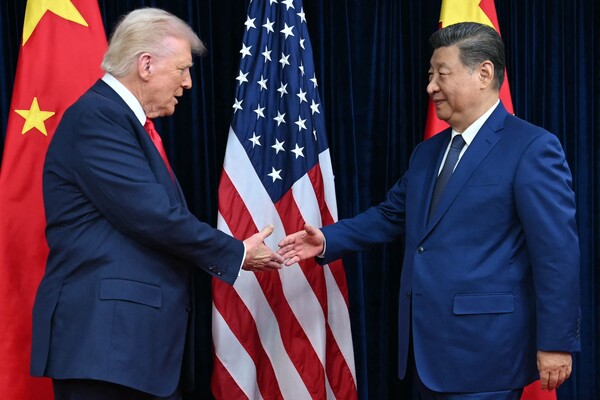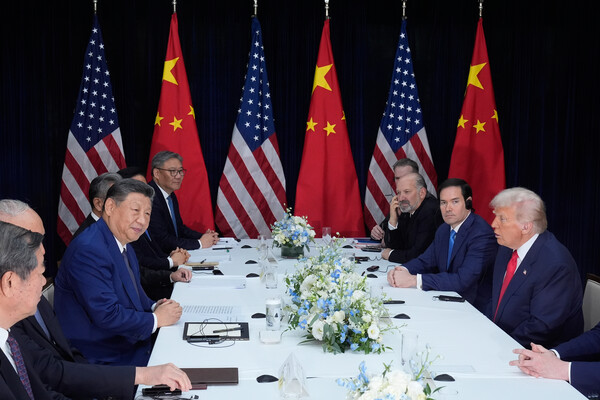At the Gyeongju APEC summit… Both leaders reaffirm commitment to easing tariff and trade disputes, stating “The two countries are partners and neighbors.”

Chinese President Xi Jinping stressed the need to maintain stability in U.S.-China relations during a long-awaited summit with U.S. President Donald Trump in Busan on October 30. The meeting, held on the sidelines of the APEC summit, marked the first face-to-face dialogue between the two leaders in more than six years.
Speaking at the bilateral session, Xi said that the two countries must ensure that "the great vessel of U.S.-China relations continues to sail steadily," even amid headwinds. He acknowledged that differences between the two sides are inevitable, given their distinct national circumstances, but argued that disagreements should not prevent cooperation.
"The development and rejuvenation of China does not conflict with the goal of making America great again," Xi said. "China and the United States can achieve prosperity together. The two sides should be partners and friends, not rivals locked in confrontation."

The remarks came after a series of high-level negotiations between U.S. and Chinese trade teams in Malaysia earlier this month. The two sides reportedly made progress on key issues, including tariff measures and supply chain policies, building momentum ahead of the leaders' meeting.
Since the start of Trump’s second term, U.S.-China relations have been strained by a succession of tariff increases, technology export controls, and national security restrictions. However, both governments have recently signaled a cautious willingness to avoid further escalation, with discussions continuing on potential adjustments to tariff schedules and export controls.
Xi also praised Trump’s diplomatic engagement on global issues, noting the U.S. role in ceasefire efforts in Gaza and mediation efforts in Southeast Asia. Xi said China has also contributed to resolving border matters in the region, adding that both nations, as major global powers, share responsibility for regional and global stability.
Accompanying Xi at the summit were senior officials overseeing China’s diplomatic, economic, and security portfolios, including Wang Yi, Heli Feng, and Wang Wentao—indicating that follow-up negotiations are expected to continue.
Meanwhile, President Xi began a three-day visit to South Korea as part of his attendance at the APEC summit in Gyeongju. On November 1, he is scheduled to hold a South Korea–China summit with President Lee Jae-myung, where discussions are expected to focus on regional economies, supply chain cooperation, and cultural exchange.

